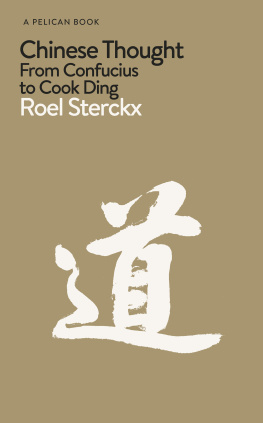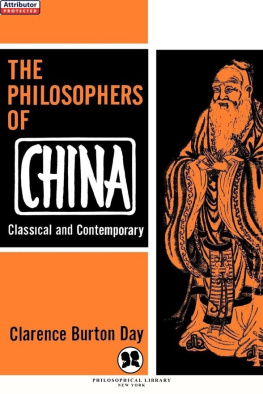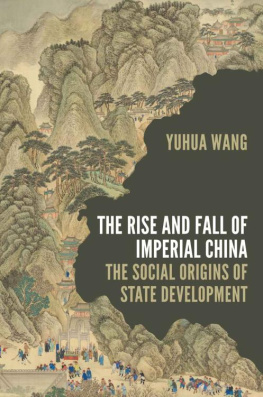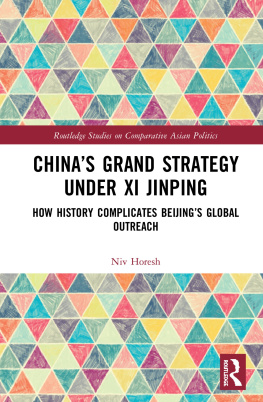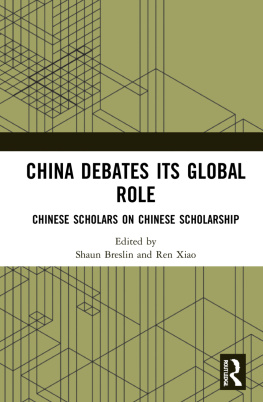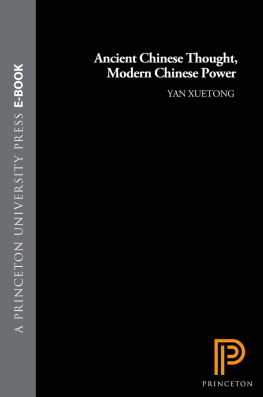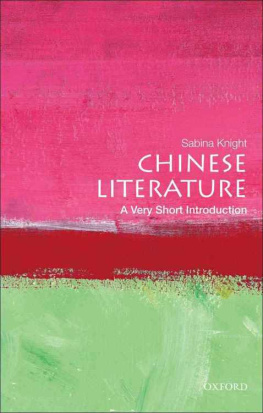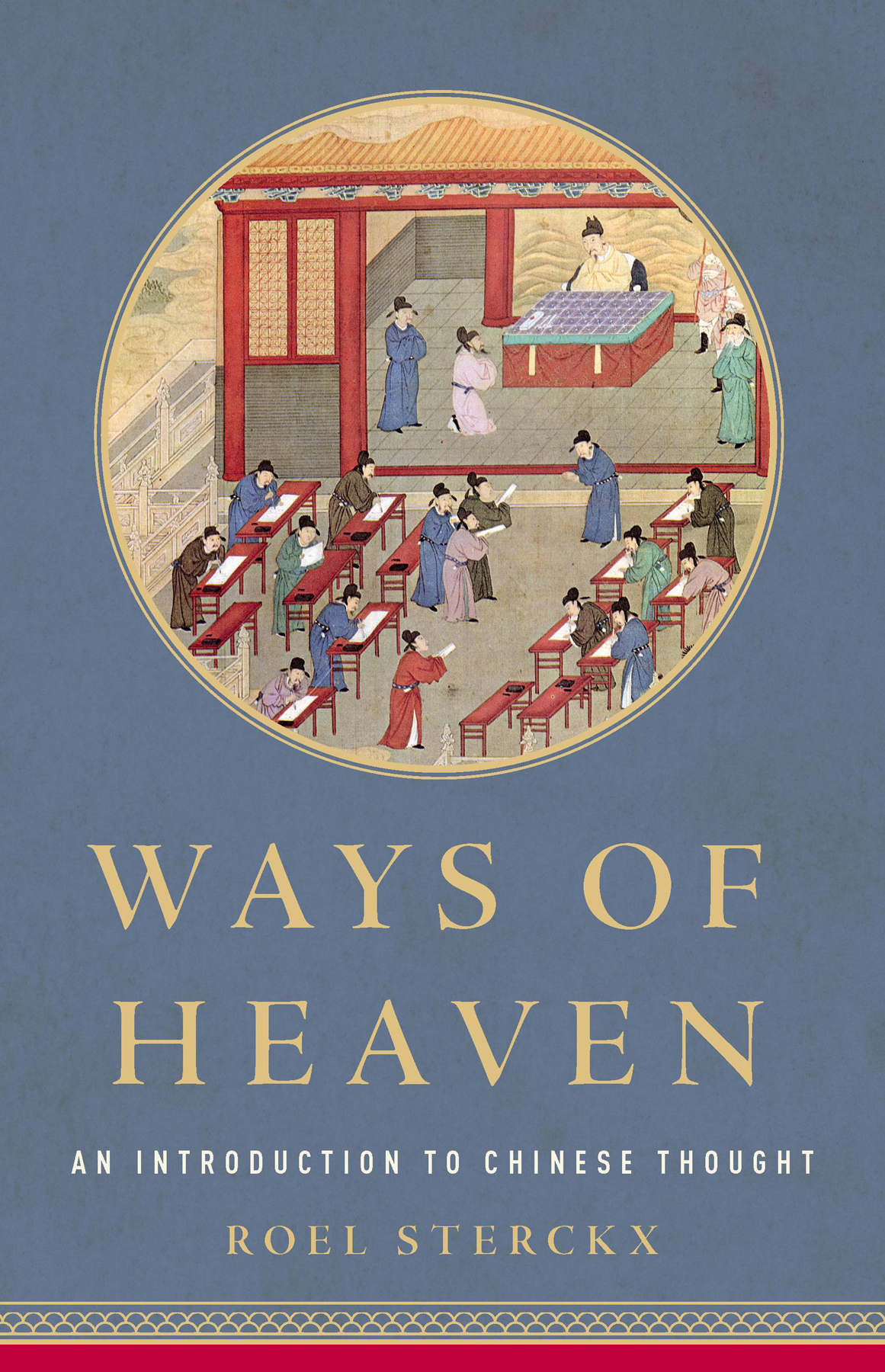Copyright 2019 by Roel Sterckx
Cover design by Chin-Yee Lai
Cover image copyright MM_Photos/Shutterstock.com; Granger/GrangerAll rights reserved
Cover copyright 2019 Hachette Book Group, Inc.
Hachette Book Group supports the right to free expression and the value of copyright. The purpose of copyright is to encourage writers and artists to produce the creative works that enrich our culture.
The scanning, uploading, and distribution of this book without permission is a theft of the authors intellectual property. If you would like permission to use material from the book (other than for review purposes), please contact permissions@hbgusa.com. Thank you for your support of the authors rights.
Basic Books
Hachette Book Group
1290 Avenue of the Americas, New York, NY 10104
www.basicbooks.com
Originally published in 2019 by Pelican Books in the United Kingdom
First US Edition: September 2019
Published by Basic Books, an imprint of Perseus Books, LLC, a subsidiary of Hachette Book Group, Inc. The Basic Books name and logo is a trademark of the Hachette Book Group.
The Hachette Speakers Bureau provides a wide range of authors for speaking events. To find out more, go to www.hachettespeakersbureau.com or call (866) 376-6591.
The publisher is not responsible for websites (or their content) that are not owned by the publisher.
Library of Congress Control Number: 2019936529
ISBNs: 978-1-5416-1844-2 (hardcover), 978-1-5416-1845-9 (ebook)
E3-20190824-JV-NF-ORI
For En-En
China has emerged onto the world scene wielding economic and political power and influence as never before. When the thirteenth-century Venetian traveller Marco Polo reported on the riches of this vast empire, its people and its cities, his stories were bundled together in a book that announced itself as describing the marvels of the world (Le Livre des merveilles du monde). Today our encounters and fascination with China are more sophisticated and multifaceted. To an increasing number of students and professionals, China no longer represents that quintessentially other civilization, that place where each and every habit, virtue and vice seems to turn upside down everything held dear by a loosely self-identified West.
The direction of human travel, too, has turned irreversibly. Gone are the days when a handful of missionaries fuelled European curiosity about China during the eighteenth-century Enlightenment, or when, a century later, accounts of the achievements and tribulations of a waning Chinese empire were funnelled to Europe by a select group of traders, diplomats and preachers. Today, every respectable university campus in the world recruits and plays host to highly talented Chinese students and researchers. China trades visibly, and invisibly, in every corner of the world. Its goods, services and cultural capital are discernible, audible or edible in every household. Young people explore the Chinese language at school, university or in evening classes with the same curiosity that drew foodies to Chinese cuisine before noodles and Peking duck went global.
Yet our schools, colleges and media have barely begun putting together the elementary curricula needed to introduce aspiring global citizens to the basic outlines of Chinese civilization and Chinese ways of thinking. China, so far, tends to creep into our narrative only from the time it appears on the imperial horizons of the West, or when it enters the international politics of the twentieth century, or when its economy seems unresistingly relevant (or threatening) to us. In university departments, philosophy still sounds mostly Greek; neither does one-fifth of the worlds population appear to have a religion, judging by many course syllabi. Beyond its moments of encounter with the West, to many China remains a land of tea and calligraphy, poetry and porcelain, and the odd imposing emperor. For those still comfortable with intercultural conversation in terms of we versus them, the knowledge that the average Chinese teenager or college student knows much more about us than we know about them should be a gentle wake-up call. To understand China, we need to learn to think Chinese.
This book requires no knowledge of China. Its thematic organization reflects my personal digest as it has grown in conversation with students and audiences over the years. Like myself at the age of eighteen, many of my students did not know what to expect or where to begin when they came to college to study China, its history, language(s) and thought. I hope this book will give readers some useful vantage points from which to begin their own dialogue with Chinese thinkers. Readers who wish to jump straight into the world of ideas can consider skipping the first chapter, which offers background information on Chinese history, geography, the classical Chinese language and the nature of the sources at hand. Busy readers should be able to turn to individual chapters in no particular order.
Historians short of ideas tend to become historians of ideas. A good way to characterize Chinese thought is to spell out what it is not. In the pages that follow, you will find little theoretical reflection on how the human mind works, or whether there exists a world or reality beyond this one. Nor will you be told how matter relates to spirit, what truth is (let alone logic) or whether there exists such a thing called mind or knowledge. Why? Because such questions (known among professional philosophers as epistemology and ontology) did not figure highly on the agenda of Chinese thinkers. The classical Chinese language did not have a term for philosophy; the modern Mandarin term (zhexue) was imported from Japan in the late nineteenth century (and initially only referred to Western philosophy).
Chinese thought is predominantly human-centred and practice-oriented. The great questions that have occupied Chinas brightest minds are not about who and what we are, but rather about how we should live our lives, how we relate to others, how we should organize society and how we can secure the well-being of those who live with us and for whom we are responsible. Human conduct, human nature and the politics of human society will form the bulk of the story here. When comparing philosophical traditions, it is easy to get lost in the many different answers various thinkers give to the enduring questions of life. A more fruitful way into a culture is to focus first on the questions that are asked, before worrying about the answers. In China these questions included: what makes a good person; what type of person is fit to govern and lead others; how can we create order in society; how can past traditions inform the present; what can we learn from those who came before us; what strategies will enable us to outmanoeuvre our enemies and competitors; how do we persuade others; does social engagement make for a fulfilling life, or is it better to retreat from society altogether?
Ancient Chinas masters of philosophy the protagonists of this book rarely engage in intellectual debate for its own sake. Most ideas are offered as guidance to be lived, experienced and practised. (Ironically, Chinas most influential thinker, Confucius, was a failure in office and unable to find a ruler willing to put his ideas into practice.) They reflect on how to live, function better and find harmony with the world. Yet in putting lived experience above theoretical knowledge, their teachings touch the entire person, the brain as well as the emotions. That is why they are as relevant today as they are interesting for their past.


